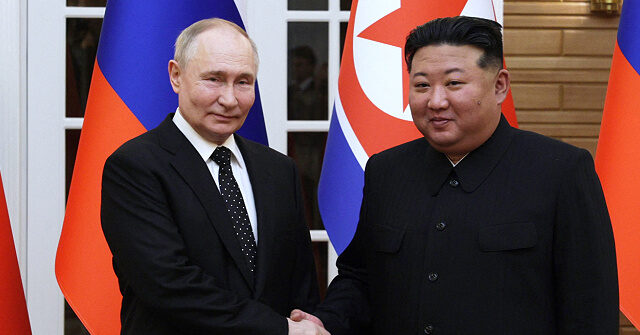A collective of approximately two hundred North Korean defectors is advocating for their deployment in Ukraine, aiming to counteract the morale and influence of around 12,000 North Korean troops allegedly sent to fight alongside Russia. According to Lee Min-bok, one of the defectors, their intention contrasts with that of the North Korean soldiers, who are essentially functioning as mercenaries. By positioning themselves as volunteers on a goodwill mission in Ukraine, they believe their presence could inspire hope among North Korean troops and motivate some to seek freedom by abandoning their posts. This initiative is bolstered by the belief that these defectors possess a rich understanding of North Korea’s military culture and psychological state, making them uniquely qualified to engage in psychological warfare against the oppressive regime.
The group, which comprises military veterans, is prepared to employ psychological warfare tactics—such as loudspeaker broadcasts, leaflet distribution, and interpretation—to advocate for the cause of defection among North Korean mercenaries serving in Russia. Ahn Chan-il, the head of the World Institute for North Korea Studies and a key member of the initiative, shared his personal motivation for this mission. He recalled how he himself was inspired to defect in 1979 after experiencing the impact of similar broadcasts while stationed along the border. The defectors hope their initiative will resonate with fellow soldiers, particularly given the dire conditions many North Koreans face, including food shortages and malnutrition.
Today, a significant population of around 30,000 North Korean defectors resides in South Korea, and many of them are understandably disturbed by North Korea’s aggressive militarism and disregard for international law, particularly in light of their troops being dispatched to engage in combat in Russia. Lee and Ahn’s group perceives this deployment of soldiers as alarming, reinforcing their commitment to intervening and exploiting psychological operations that promote defection amongst North Korean troops. They believe that a visible presence of defectors could instill a sense of camaraderie and a desire for freedom among those suffering under North Korea’s oppressive regime.
Lee Min-bok has expressed these intentions in a direct outreach effort, writing an open letter to the Ukrainian embassy in Seoul. In his correspondence to Ukrainian President Volodymyr Zelensky, Lee offered his group’s assistance, framing it as a mission to potentially rescue North Korean soldiers who may otherwise be utilized as expendable forces by the Russian military. This outreach has prompted the South Korean Foreign Ministry to relay the letter to the Unification Ministry, which manages issues related to North Korea. However, an official response from the Unification Ministry has yet to be reported, leaving the defectors anxiously awaiting a reaction.
In Ukraine, efforts to facilitate defections have already been initiated, with the establishment of a hotline dubbed “I Want to Live,” intended for Russian-aligned forces, including North Korean troops, to reach out and embrace the option to surrender. The urgency of this matter is underscored by the increasing alarm from South Korea regarding North Korea’s military involvement in Russia. South Korea has signaled potential retaliatory actions, including the possibility of providing lethal military assistance to Ukraine in response to the ongoing situation, reflecting diplomatic tensions brought about by the disturbing alliance between North Korea and Russia.
Recent confirmations from credible organizations, including the European Union (EU) and NATO, have further recognized the reports surging from South Korea about the presence of North Korean troops training in Russia. The U.S. Pentagon has corroborated these findings, expressing worries over the migration of these troops closer to Ukrainian territory and suggesting that their deployment could be imminent. The Pentagon has specifically noted that there are concerns regarding the motivations behind Russia’s use of these soldiers in combat, fearing they could be employed to bolster operations against Ukrainian forces, thereby exacerbating the ongoing conflict and resulting in an even more dire humanitarian crisis.

